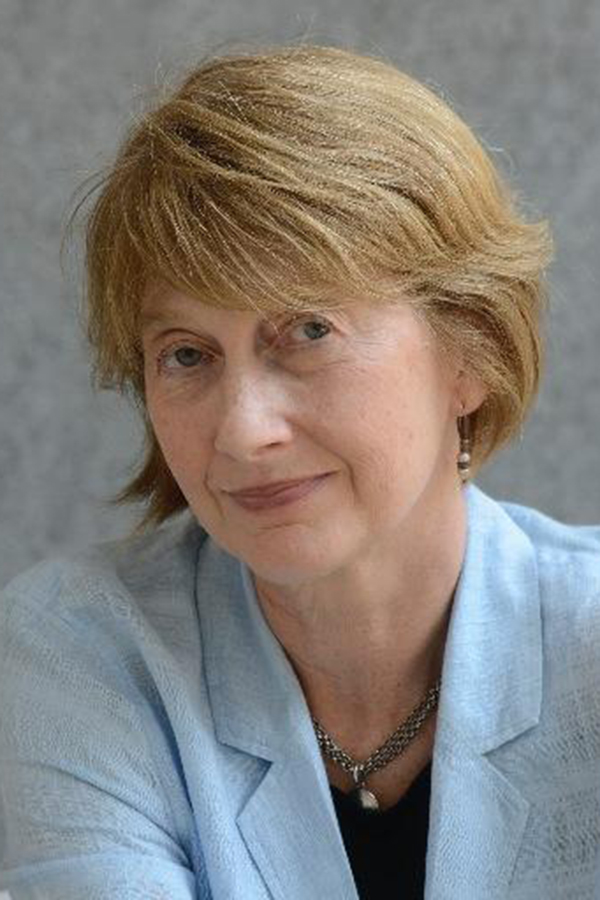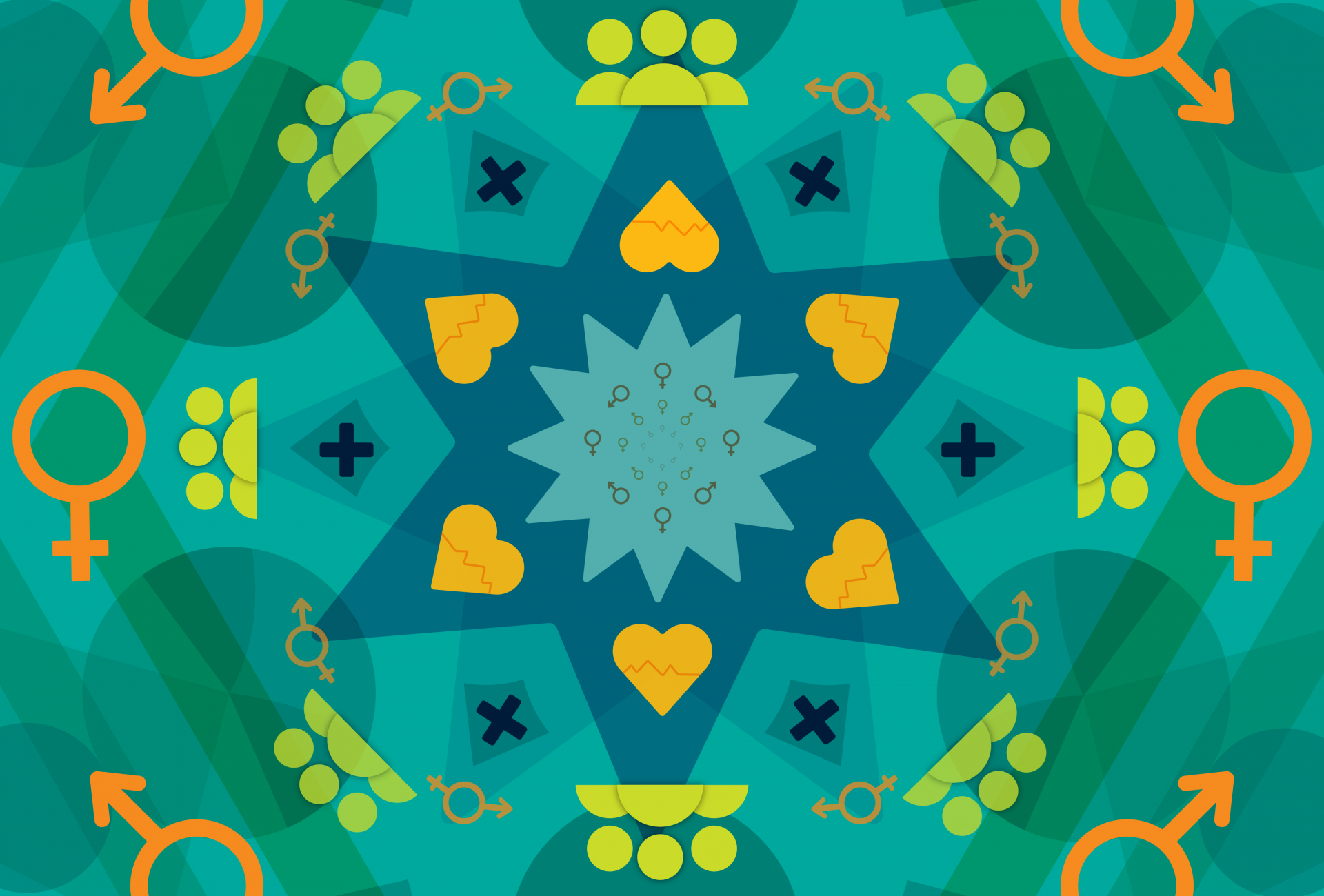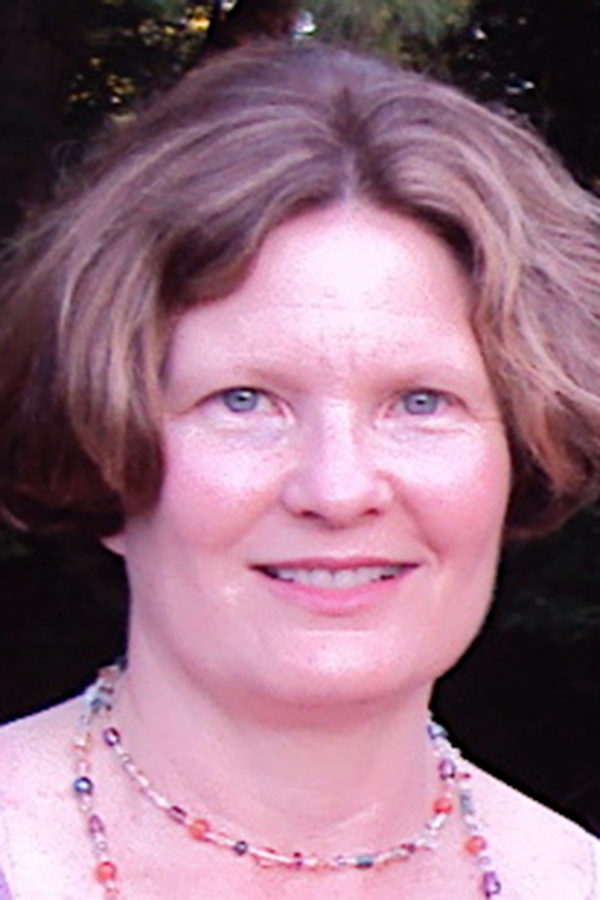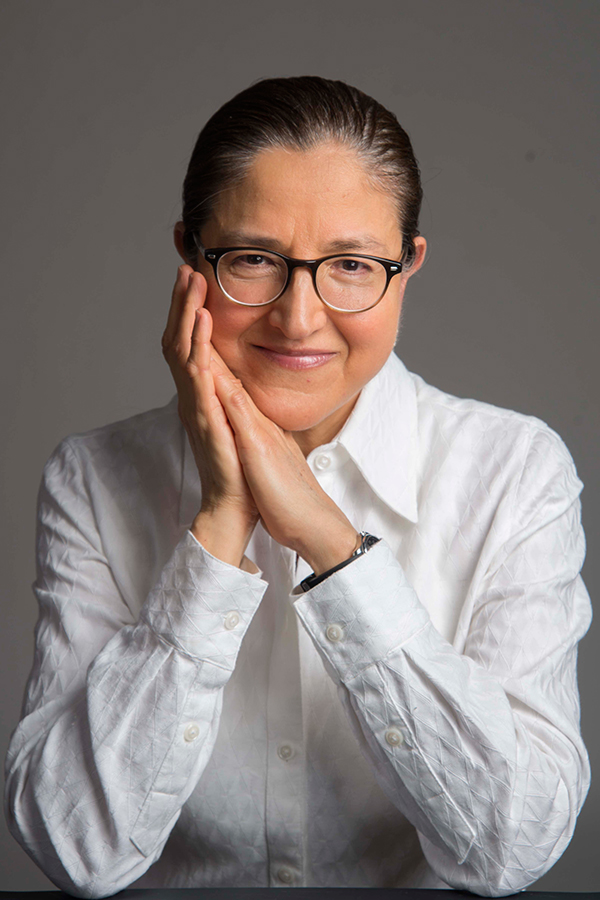It is hard to imagine a more relevant discipline in 2020 than sociology: the study of human society, relationships and organizations. In a time of unprecedented isolation, questions about race, gender and class have become increasingly pressing.
This year, three faculty members from the Department of Sociology at The University of Texas at Austin — which is ranked #11 in the nation — have won lifetime achievement awards from the American Sociological Association (ASA): Jennifer Glass, Debra Umberson and Gloria González-López.
To celebrate these remarkable women, I interviewed each scholar and their colleagues about their lifetime of service to the field.
Jennifer Glass, ASA Jessie Bernard Award
Jennifer Glass, a Centennial Commission Professor of Liberal Arts in the Department of Sociology and research associate in the Population Research Center, has won the 2020 ASA Jessie Bernard Award, which recognizes research, teaching, mentoring and service that has “enlarged the horizons of sociology to encompass fully the role of women in society.”
Growing up in a financially strained family, Glass saw completing a bachelor’s degree as a feat. But, one of her undergraduate professors at New College in Florida, Natalie Rosel, told her that she should pursue graduate school in sociology. Glass’s unfiltered response: “What’s graduate school?” Undeterred, Rosel signed up Glass for the GRE and directed her to apply for specific programs. Glass enrolled at the University of Wisconsin’s Ph.D. program in sociology the next fall with an interest in children’s development.
However, after digging into the resources at Wisconsin’s Center for Demography and Ecology, Glass realized her interest was in workforce issues. She started asking: Why is it that the people who are taking care of kids get paid the least? Since then, Glass has researched how and why the American economic system is punitive to workers with care responsibilities.
For a layperson, the popular debate around the “gender pay gap” can provide some context for Glass’s work. It is not hard to find articles outlining how when men and women in similar professions and backgrounds have children, the men either benefit or have no ill effects economically, while women consistently get penalized for caring for children and elderly relatives.
Still, most general interest publications explain away the disparity in earned income with two myths. One, that American women do not earn as much as men because they lack specific credentials; and two, that women frequently self-sabotage their earning potential by taking low-paying jobs that are viewed as more compatible with family life. Over the years, Glass has tirelessly accumulated and analyzed data to show how false both claims are. The truth: Either a mother works overtime as an employee and as a parent, or she works overtime at a corporate job to pay for someone else to do the heavy lifting of parenthood.
When we see workforce issues as a “woman’s problem” based on individual women’s choices, we fail to understand the reality of the situation. The issue is structural, not individual.
“We live with fiction that somehow it’s okay that moms will muddle through just as they always have, as if it does not hurt children,” Glass says. For the perpetuation of America as a country (and a world leader in economic growth), we should all be invested in making it easier and more rewarding for American mothers to have and to care for their kids.
Glass’s research points to a solution: comprehensive work hours reform and generous parental benefits. Companies should expect 40 hours of work, and if extra labor is needed, pay over time. There should be a wide societal acceptance and push to see social obligations like parenting, caring for elderly parents, volunteering in the community and rejuvenating time off as crucial to the long-term health of our economic engine.
Rather than assuming women will continue to “do it all,” the culture around work needs to recognize and reward the labor of caring for kids as an investment in the future of our economy. More options and less costly options for daycare and schooling need to become widespread.
In 2020, as the burdens of care during the pandemic have fallen increasingly upon mothers, it could be easy to throw up our cultural hands and assume this situation is perpetual. Glass takes a more optimistic viewpoint, as she considers the social “tipping points” that have flipped previously-fixed beliefs in American life, such as marijuana legalization and legal recognition of LGBTQ+ lives.
Till then, Glass’s colleague Christine Williams’s assessment reassures us we have a fighter in our corner: a “myth buster who debunks sexist stereotypes through careful analysis of data.”
Glass is working on her next book, tentatively titled: All Fall Down? American Mothers’ New Economic Responsibility for Children and the Retreat of Fathers, Employers, and the State. In this manuscript, Glass traces the history of why an increasing percentage of American children rely upon their mother as a primary household earner.

Debra Umberson, ASA Distinguished Career Award and the Leo G. Reeder Award
Debra Umberson has received not one, but two prestigious awards this year: the 2020 Distinguished Career Award from the ASA Family Section for outstanding contributions to sociological research on family, and the 2020 Leo G. Reeder Award for distinguished contributions to medical sociology from the ASA Medical Sociology Section. Umberson’s long and prolific career considers how social ties, particularly family relationships, relate to health.
As an undergraduate, Umberson studied gerontology (the scientific study of aging and its effects) at the University of Arkansas at Little Rock, where she also completed a master’s degree in social work. After earning her master’s and doctorate in sociology from Vanderbilt University and a three-year postdoctoral fellowship at the University of Michigan, she came to Austin as an assistant professor of sociology and research associate at the Population Research Center (PRC) in 1988.
That same year, she published (with James House and Karl Landis) a now-seminal paper in Science about social relationships and health. This paper demonstrated that people with few or poor-quality social relationships had a higher risk of death.
As Mieke Thomeer, Umberson’s former student and current associate professor of sociology at the University of Alabama at Birmingham, explains:
…one reason for this health benefit of relationships is that people work to improve the health of family members, a concept she [Umberson] called social control. For example, a woman might schedule her husband’s doctor appointment when she notices he is experiencing chronic pain or remind him to take his medications.
While Umberson’s early work focused on heterosexual relationships, her later work has included gay and lesbian couples. Thomeer noted that Umberson’s study of couples in Massachusetts was one of the first to include a large sample of married same-sex couples alongside different-sex couples.
“There is perhaps no social scientist working today who has done more to illuminate the intricate role that marriage plays in our mental and physical health than Debra Umberson, whose research on this topic is incredibly innovative and equally thoughtful,” says Robert Crosnoe,associate dean of research for the College of Liberal Arts and Rapoport Centennial Professor. “Considering that the overwhelming majority of Americans (and Texans) will marry in their lives – often more than once – Dr. Umberson is an example of how good science is a public service.”
Mark D. Hayward, a Centennial Commission Professor of Liberal Arts in the Department of Sociology and research associate in the Population Research Center, says Umberson’s career has shaped our understanding of the many ways in which social relationships affect people’s health and wellbeing.
“Her work is always opening up major research avenues,” Hayward says. “She is the nation’s expert on how social relationships influence people’s health.”
It is not surprising that major national and local publications seek out Umberson’s insight and advice. The New York Times recently highlighted her research on same-sex couples.
Moreover, as the COVID-19 pandemic has continued to affect all areas of American life, fellow scholars and journalists turn to Umberson’s scholarship to make sense out of apparent chaos. In January 2020, Umberson published a review article in the Journal of Marriage and Family with Thomeer, presenting data about family ties and health from 2010-2020.
The COVID-19 pandemic has also touched another primary thread of Umberson’s research — racial disparities in health outcomes. The greater sickness and death rates from COVID-19 in Black communities magnify the preexisting issues of police violence, early mortality and health. Moreover, as Thomeer explains, the ongoing effects of the pandemic reveal the problem of childhood adversity, in which “Black children especially have more exposure to poverty, trauma and other contexts shaped by systemic racism, and how this in turn can harm their health as they age.”
So, in this time of loneliness and isolation, how should we apply Umberson’s research? Thomeer suggests, we should recognize the negative consequences upon health and “find ways to support each other both inside and outside of our [nuclear] families.” Moreover, we should “support policies that strengthen all types of families, not privileging one type or another…not placing too many strains on families without also giving necessary resources.”
More than ever before, people around the world are recognizing the value of close social ties, we can be particularly grateful to Umberson and her vision of the American family.
Umberson’s research is currently focused on two areas: racial disparities in grief and loss, and its effects on health outcomes; and the relationship between same-sex marriage and health outcomes.
Gloria González-López, ASA Simon-Gagnon Lifetime Achievement Award
Gloria González-López has won the 2021 ASA Simon-Gagnon Lifetime Achievement Award, which honors career contributions to the study of sexualities. She will receive the award at the annual meeting of the ASA in Chicago in 2021. The section will also organize a session around the awardee’s work or scholarly interests for that same year.
“It is hard for me to think of any other sociologist who has done more to comprehend the meanings of sexual violence in Latin America than Gloria González-López,” says Javier Auyero, the Joe R. and Teresa Lozano Long Professor in Latin American Sociology at and interim director at LLILAS Benson.
González-López identifies herself as a “public sociologist” from a “transnational family.” But after talking to her, I would venture to offer her yet another title: natural storyteller.
González-López’s story begins when her maternal grandparents migrated from Mexico to Houston about 100 years ago, where her mother was born soon after. However, González-López was born and raised in Monterrey, Mexico, providing her a window into two worlds.
After receiving a bachelor’s degree in psychology in Mexico, González-López came to the United States to start from scratch and improve her limited English, and eventually pursue a master’s in behavior science. Moved by immigrant experiences, she considered pursuing a Ph.D. in community psychology, but was directed into sociology and community activism by the dean of her master’s program, who fatefully remarked after hearing her passions as an activist and researcher: “you sound like a sociologist!”
González-López enrolled in the University of Southern California’s Ph.D. program in sociology, receiving along the way a master’s degree in couple and family therapy. In California, González-López became increasingly connected to the community activist space and determined her primary goal was to be a practice-based researcher. Her career would prioritize the production of knowledge for social justice and community healing. She was introduced to feminist psychotherapy, providing her with a lens and vocabulary to make sense of the realities of women’s lives and their trauma, while also honing her skills as a therapist listening to their stories.
After completing a postdoc at the University of California-Berkeley, González-López came to UT Austin as an assistant professor of sociology in 2002. For years her mother had insisted she moved back to Texas — even spearheading a spontaneous road-trip to campus, years earlier and while she was still working on her dissertation.
As with much of her career, González-López’s most significant scholarship to date arose from inspiring female mentorship and community activism. Having completed her first manuscript, Erotic Journeys: Mexican Immigrants and Their Sex Lives, and seeking inspiration for the next project, she turned to an influential mentor for advice. Instead, she got two questions: What’s the community you care about? What’s urgently needed?
For González-López, her community was clear — Ciudad Juárez, the violence-wracked Mexican city across from El Paso. Her activist friends had an immediate answer to the second question. While femicides (killings of women rooted in gender inequality) in Ciudad Juárez had received national and international attention in the 1990s and 2000s, the more secretive sexual violence within families had been almost totally overlooked. Although activists from the United States and around the world sought to help, the lack of understanding of the cultural and social norms was the screaming silence that needed to be broken, documented and examined. Research to guide intervention and education was desperately needed.
González-López conducted 60 interviews with women and men in four Mexican cities (Ciudad Juárez, Guadalajara, Mexico City and Monterrey) who had experienced incest, as well as 35 professionals from these urban areas. What resulted — nearly 10 years from the first call to action — is Family Secrets: Stories of Incest and Sexual Violence in Mexico. The book is strikingly distinct from more quantitative approaches to sociological study. González-López begins each chapter by telling her subjects’ stories, then offers theoretically-informed analysis. The result is a difficult but important record of hidden trauma enabled by a patriarchal society heavily influenced by the sexual mores of the Catholic church.
Sadly, González-López ’s groundbreaking research on domestic violence is all too relevant in 2020. With the implementation of stay-at-home orders and government lockdowns, domestic partner violence and child abuse is spiking.
In recent years, González-López has taught a course about sexual violence across Mexican cultures. The symbolism of a Mexican immigrant professor teaching a classroom filled with students of color is not lost on González-López. The privilege of learning — and having difficult dialogues — about their culture would have been unthinkable for the majority of their ancestors.
In the classroom, González-López uses “the kaleidoscope of inequality” as a metaphor to explain the variations of inequality, describing how:
…if we turn the kaleidoscope in some way, we might be able to see social inequality through the reflection of multiple shapes and patterns organized by race. If we keep turning the kaleidoscope, we will see inequality through the reflection of contrasting patterns organized by class. And if we turn it more, we will see how gender may similarly offer a distinctive pattern of colors and shapes. And as we could continue moving it, sexuality as well as body ability would shape as well this endless reconfiguration of the social organization of inequality.
Rather than reducing the complexity of the human experience, González-López encourages her students — and all of us — to see the world from multiple points-of-view. This nuanced perspective has shaped González-López’s crucial work on sexual violence in Mexican society as a feminist scholar, public intellectual and teacher. By gaining and sharing her specialized knowledge, she hopes to transform society, saying: “In the end, it’s not about me, it’s about the community.”
González-López is at work on her next project, in which she plans to research and write about self-care. In the meantime, you can read more of her work in her opinion pieces from Ms. Magazine.


